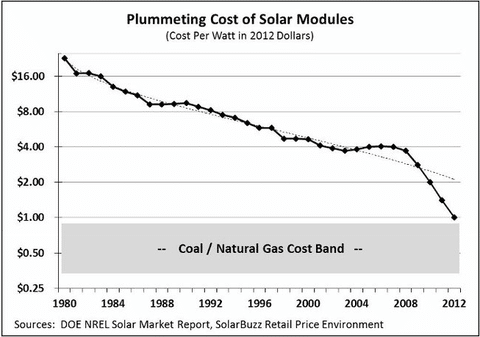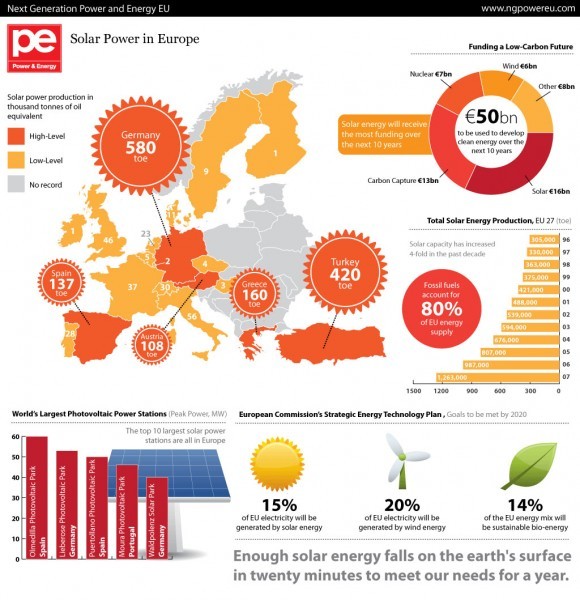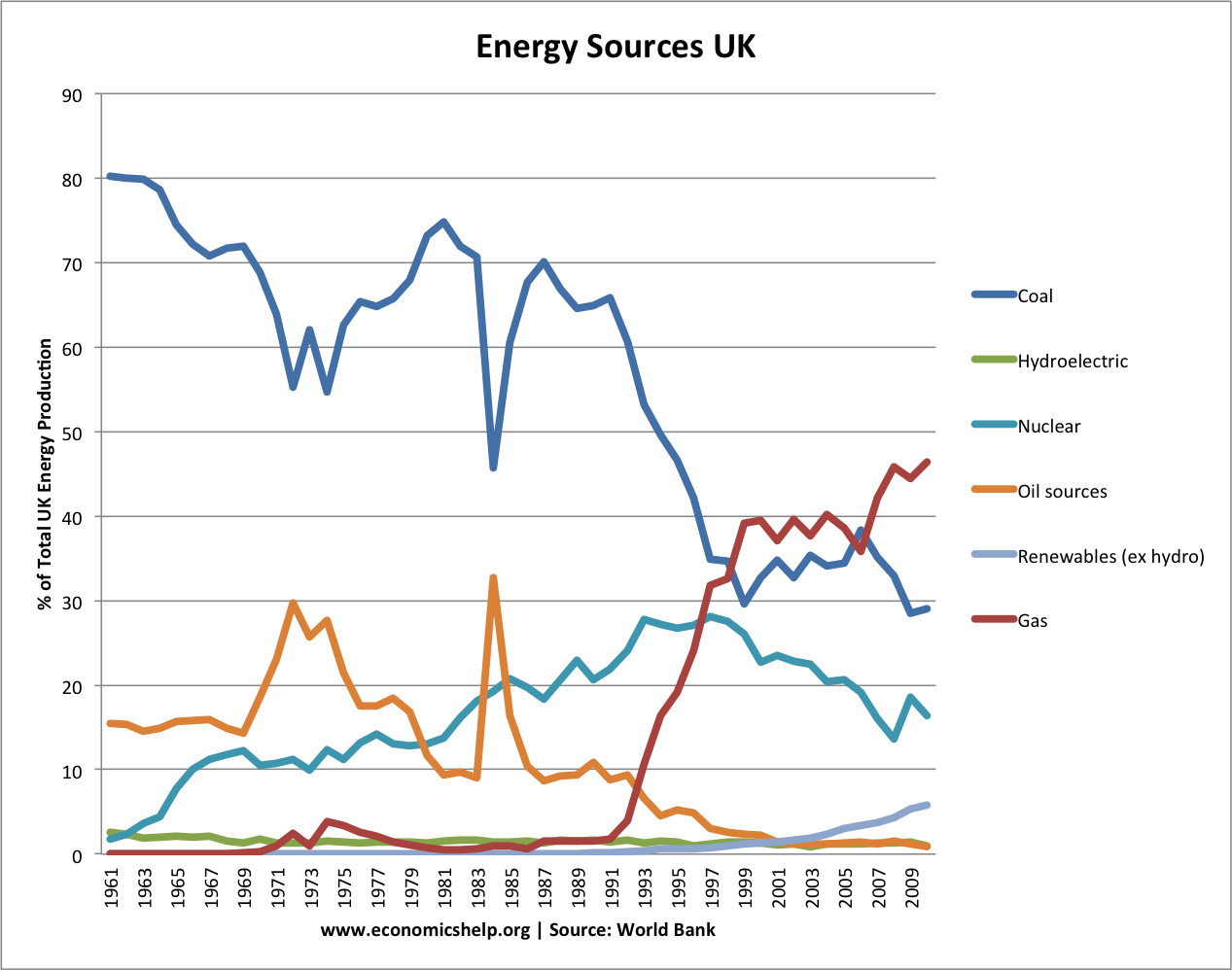Question and answers on the difficulty of switching from non-renewable energy sources, such as fossil fuels. (from – finding alternatives to fossil fuels)

Readers Question: Why is it that on a global scale, alternative fuels are somewhat being ignored?
Firstly, fossil fuels are still cheaper. However, the gap is narrowing. For example, see how solar panels are coming down in costs.

There can be a reluctance to switch from one mode of production to another. Even if an alternative became cheaper, it requires significant investment to switch from one mode of power to another. For example, the UK kept steam trains running into the mid 1960s. Diesel was more efficient and cheaper many years previously, but it required a lot of investment in infrastructure to buy new diesel trains. Often it’s easier to keep going with old technology out of habit and merely because it is what has been used in the past. In some parts of the world, steam power is still used.
But, on the other hand, if we look back in history, we can see that a dominant technology can quite quickly lose its position. America quite quickly switched from steam trains to the petrol powered car. Once a tipping point is reached the momentum can swing to the new technology.
Also, a factor is that oil and petrol companies are very profitable and it is in their interests to keep oil based industries strong. If they can delay a switch to alternative fuels they might try. How much ability they have to delay an energy switch is open to question. But, there are powerful lobbyists to support the US coal and oil industries.
Readers Question: If it is not being ignored, Why is research and development is somewhat slow?
Alternatives to fossil fuels are generally not profitable in the short term. Therefore, private enterprise has limited incentives to research alternatives. This is an example of market failure, because the market ignores:
- The long term importance of developing alternatives to fossil fuels, which will one day run out.
- The external benefits of developing alternatives to fossil fuels, e.g. improvement in environment and reduced pollution.
Because of the positive externalities, research into alternatives is something that may need some government subsidy – there are some government grants to support the research into alternative fuels. However, there is still perhaps underfunding of alternatives as governments don’t give it as much importance as they should.
However, it is worth pointing out that firms are putting investment into alternative fuels. In particular, car manufacturers have invested significantly in electric cars and electric technology. Hybrid cars have become quite a strong selling point, and this trend to improved fuel efficiency is likely to continue.
What impacts would there really be if the world would switch to alternative fuels or at least put it on the market the same way as a regular fossil fuel?

To some extent alternatives to fossil fuels are already on the market. There are renewable energy sources – such as solar, hydro and wind. However, they still only make up a fraction of our total energy needs. Renewables are less than 10% of total energy sources in the UK.

Also, alternatives to fossil fuels are starting to filter into the market. There is a growing market for electric / hybrid cars which in could be more environmentally friendly.
Would there be a economic meltdown if alternative fuels becomes competitive to fossil fuels? Is politics (political leaders, oil companies, Middle East, OPEC) behind this?
There would be no meltdown – there could be significant increases in living standards. However, there would be winners and losers from the changing economic balance. Oil producers would be worse off, at least in the short term. But, countries who import oil would be better off. Also other companies and individuals would benefit. Other companies would start benefiting from the sales of alternative fuels, and consumers would benefit from more competition and lower prices. In the long run, it would mean our energy needs are increasingly diversified and we wouldn’t be reliant on diminishing fossil fuels – this is essential for the long run benefit of the economy. It would also help to improve the environment, which is a big factor in improving living standards.
On a hypothetical, what if there is much cheaper substance such as water becomes a source for fuel, would somebody or anybody kill the idea?
If suddenly someone developed free power / free energy, there are some vested interests who would lose out, at least in the short term. But, overall economic welfare would be vastly improved. If we didn’t have to spend money on power, we would have more disposable income to purchase other goods, or we could enjoy more leisure. Thus the profile of the economy would change – the energy sector would decrease, the leisure industry could increase.
However, the problem is that if this change happened overnight, some people would feel they lose everything. The majority of people would benefit, but not as dramatic as some people would lose out
Would anybody seek to kill the idea? It depends how desperate they were to defend their vested interests. Certainly some firms and countries could see their profit stream wiped away, pretty quick. There would be a financial motive to prevent such technology. But, perhaps people would see the greater good and happily accept the new technology, despite their lower profits!
Related
